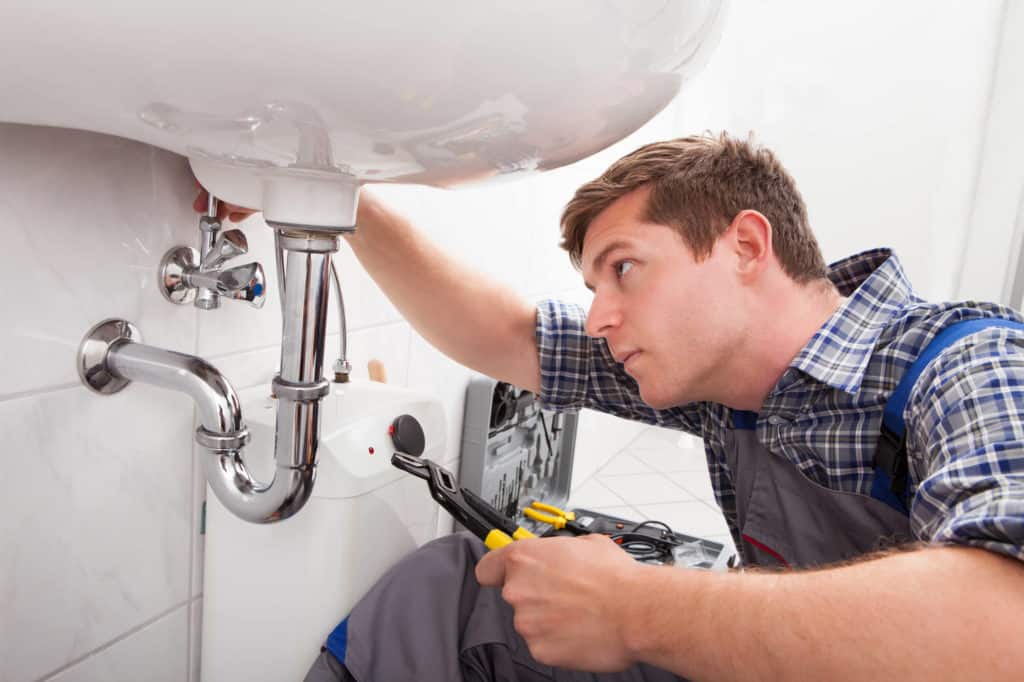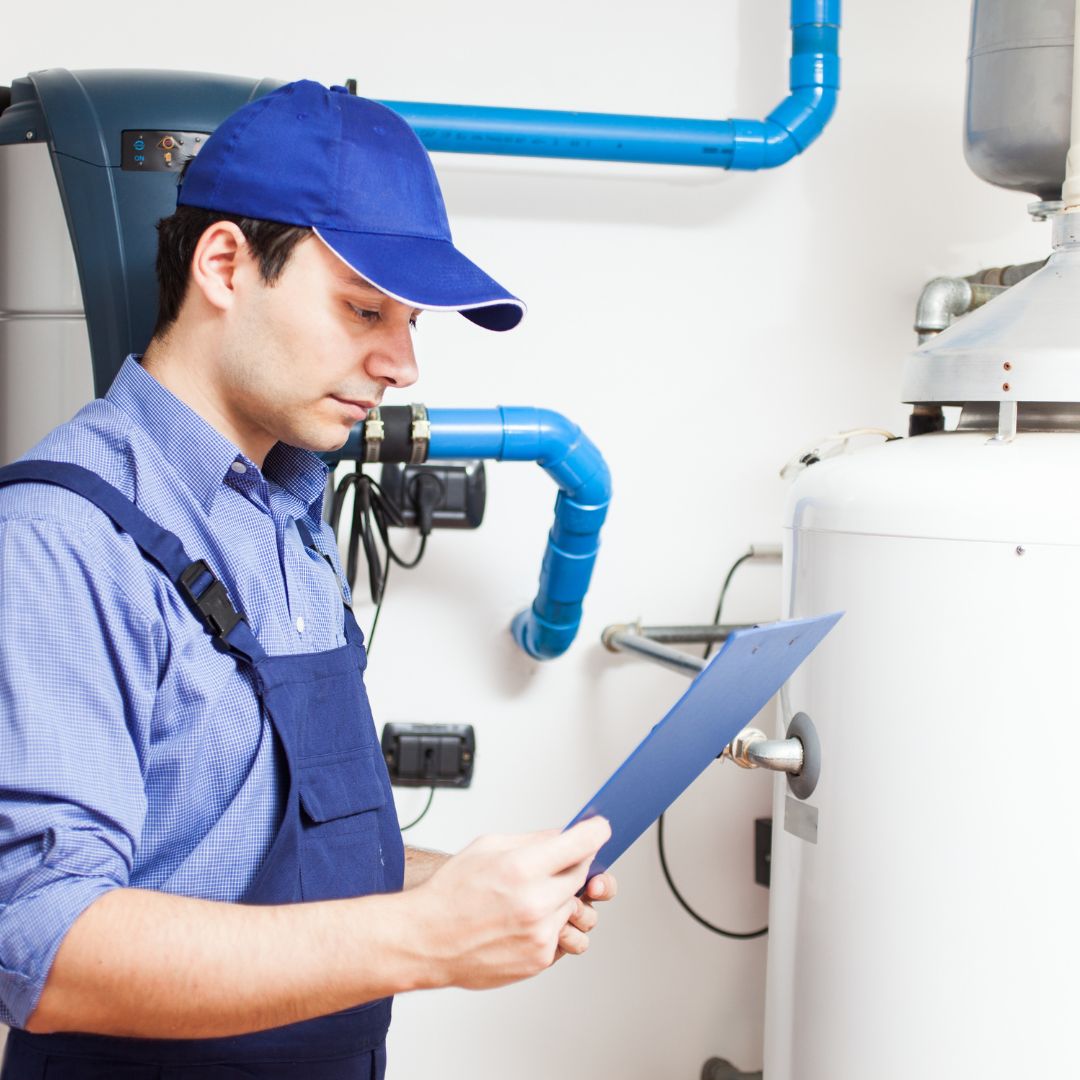Every time you turn on a faucet or flush a toilet, you benefit from the work of plumbers. This skilled tradesperson installs and repairs the systems that provide water, sewage and steam to homes and businesses.
Plumber The Woodlands also collaborate with construction teams and architects to ensure plumbing systems integrate seamlessly into building projects and meet required standards and regulations. They often must interpret blueprints and architectural plans.

Plumbers install, repair and maintain the pipes, fixtures and other equipment used for water distribution, hot-water production, sewage systems and drainage in residential, commercial and industrial buildings. They must have the stamina to perform physically demanding work and be able to read and interpret blueprints and other technical documents. Plumbers may work for construction companies, plumbing contractors, maintenance departments or as self-employed workers.
The job duties of a plumber include laying and connecting pipes, unclogging drains, installing sinks, toilets, bathtubs and showers, fixing faucets and water heaters, and inspecting and testing plumbing systems to identify issues. They must also be comfortable working with electricity and have the ability to read electrical schematics. Plumbers must also have good customer service skills, as they often interact with clients to take down information and explain complex plumbing issues in simple terms.
In new construction projects, plumbers are involved from the start, working from blueprints and architectural plans to design and install the necessary plumbing infrastructure. They must be able to work well with other tradespeople, including carpenters and electricians, and have excellent communication skills to ensure everyone understands what needs to be done.
Once a building is operational, plumbers continue to service its plumbing, including repairing and replacing pipes and fixtures, unclogging drains, and maintaining water and gas lines. They also must be able to recognize and fix issues with the building’s heating, ventilation and air conditioning systems. Some plumbers specialize in commercial or industrial settings, while others focus on residential services.
Depending on the job, plumbers must be able to handle a variety of hazardous materials. For example, if they are repairing a sewage system, they may encounter human waste, which can contain infectious diseases such as cholera, typhoid and hepatitis. They may also encounter chemicals, such as cleaning solutions and paint, that can be toxic if ingested or inhaled. As a result, it is important for plumbers to follow strict safety protocols when handling these substances. In addition, they must be able to use a wide range of tools and machinery, including power and hand tools, measuring devices and cutting tools.
Education and Training Requirements
A plumber needs to have a high school diploma or equivalent to begin his career. From there, he can choose to attend trade school or community college or find an apprenticeship program. These programs usually last four to five years and combine on-the-job training with classroom instruction. During this time, he will learn the skills necessary to become a skilled plumber and will also earn a regular salary.
After completing the program, he will receive a career diploma that proves to potential employers that he has the right skills for the job. Then, he must pass an examination that will allow him to apply for a license in the state in which he wants to work. The licensing process will vary somewhat from state to state, but it generally involves a background check, proof of experience, and passing a rigorous exam.
In addition to general plumbing skills, a plumber must be knowledgeable of state and local laws that govern the water industry. Moreover, he must be able to interpret blueprints and architectural plans, so that he can correctly install plumbing infrastructure in new construction projects.
Since plumbers often interact with clients directly, they must be able to convey information clearly and concisely. They must also be able to listen to the concerns of their customers and respond accordingly. In addition, plumbers must be able to handle complaints and provide solutions that will satisfy the customer.
Another important aspect of a plumber’s training is the completion of specialized courses in areas such as pipefitting, gas plumbing, and steam fitting. Many trade schools and community colleges offer these courses, which can lead to certifications that will increase a plumber’s marketability.
Because plumbers are often required to deal with human waste, they must be aware of the dangers of infectious diseases. They must wear protective clothing and use proper sanitation techniques to prevent the spread of bacteria, such as cholera, typhoid, hepatitis, cryptosporidiosis, and schistosomiasis. They must also be careful when working on sewage systems, because contaminated waste can cause diseases such as polio, hepatitis, and cysticercosis.
Work Environment
A plumber’s work environment can vary significantly, depending on a number of factors. These may include the geographic location, industry demand, and training options. Plumbers can also choose to specialize in particular work settings, such as commercial or industrial plumbing projects.
Regardless of the specific job setting, all plumbers must complete their work in a safe and professional manner. This includes following all relevant safety procedures and ensuring that all necessary equipment is in good working order. Plumbers must also be prepared for the physical demands of the job, such as climbing stairs or ladders in tight spaces and working with tools that require significant manual dexterity.
The majority of plumbers work from an office or shop, though many also travel to client sites to perform repairs and installations. These locations can range from homes to office buildings to manufacturing plants. Plumbers who travel to job sites often spend their time in cramped and confined indoor spaces.
Plumbers can also work on outdoor projects, such as installing water supply systems or repairing sewer lines. These jobs may be more dangerous and require more physical labor, as plumbers must frequently lift heavy objects and work in extreme weather conditions.
As a result, this type of work is not suitable for individuals who are uncomfortable with performing strenuous physical activities or those who are not comfortable with working in harsh or unsanitary conditions. Plumbers must also be able to communicate effectively with others, including customers, co-workers, and supervisors.
A common route to becoming a plumber is through an apprenticeship. This option allows aspiring plumbers to gain hands-on work experience while earning a salary and completing academic coursework. Apprenticeships can be arranged through private companies or local government agencies.
Once a plumber has earned his or her certification, he or she can start his or her own plumbing business. This is a popular option for skilled plumbers, as it can lead to higher earnings and greater independence. Additionally, plumbing is a stable profession that remains in demand even during economic downturns, providing additional career security.
Job Outlook
As the demand for plumbers continues to grow, this is a career that can be very lucrative. The Bureau of Labor Statistics, or BLS, projects that job openings for plumbers will continue to be plentiful, especially over the next decade. The need to replace aging workers and growing construction and building renovations will create jobs for qualified plumbers.
The need to meet government regulations regarding water efficiency and sewage disposal will also create plumbing opportunities, as will new requirements for fire sprinkler systems in residential and commercial buildings. These changes will require the services of licensed plumbers to install and inspect these systems.
Those who complete a four-year apprenticeship program can gain the experience and skills needed to become a licensed journey plumber, which will qualify them to work on their own or supervise other plumbers. Those who are able to pass state licensing exams can advance to the rank of master plumber. Many plumbers choose to start their own plumbing businesses, which gives them the flexibility to work as much or as little as they want.
A successful plumber must have excellent manual dexterity and coordination, as well as good analytical thinking skills. Problem-solving skills are also important in this profession, as is the ability to communicate with clients and colleagues. A plumber must be able to think outside the box and find creative solutions to unexpected challenges on the job site.
In addition to the normal hours spent at a plumbing job, there may be times when plumbers must work afterhours for emergency calls. These afterhours shifts, called standby, are usually scheduled in advance and provide a great opportunity for overtime pay.
Plumbers can also make a living working for large companies that specialize in the installation of plumbing and pipefitting systems for new construction and remodeling projects. They can also work in the public sector, for municipal water and sewer systems, or for private companies that install fire sprinkler systems.
Some states have higher demand for plumbers than others, and some have higher wages for these professionals. The following chart compares the employment and wages of plumbers in various states, according to data from the BLS.


